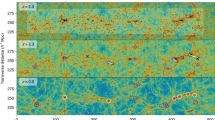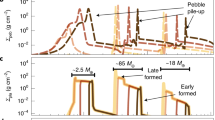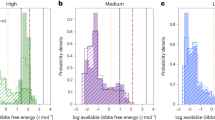Abstract
Yang and Lee's1 discovery of the non-conservation of parity in certain interactions of “fundamental particles” has led to a general acceptance of the notion that the structure of the universe is asymmetrical. So far as I know this was first enunciated by Pasteur2. The following are his exact words: “Il faut de toute nécessité que des actions dissymétriques président pendant la vie à l'élaboration des vrais principes immédiats natur els dissymétriques. “Quelle peut ê;tre la nature de ces actions dissymétriques ? Je pense, quant à moi, qu'elles sont d'ordre cosmique. L'univers est un ensemble dissymétrique et je suis persuadé que la vie, telle qu'elle se manifeste à nous, est fonction de la dissymétrie de l'univers ou des conséquences qu'elle entraiîne. L'univers est dissymétrique.”
This is a preview of subscription content, access via your institution
Access options
Subscribe to this journal
Receive 51 print issues and online access
$199.00 per year
only $3.90 per issue
Buy this article
- Purchase on SpringerLink
- Instant access to full article PDF
Prices may be subject to local taxes which are calculated during checkout
Similar content being viewed by others
References
Yang, C. N., and Lee, T. D., Phys. Rev., 104, 257 (1956).
Pasteur, L., C.R. Acad. Sci., Paris (June 1, 1874) (reprinted in “Œuvres”, 1, 361).
Author information
Authors and Affiliations
Rights and permissions
About this article
Cite this article
HALDANE, J. Pasteur and Cosmic Asymmetry. Nature 185, 87 (1960). https://doi.org/10.1038/185087a0
Issue date:
DOI: https://doi.org/10.1038/185087a0
This article is cited by
-
True and false chirality and absolute enantioselection
Rendiconti Lincei (2013)
-
The tautomerization of H2NCH2C(OH)NH to H2NCH2CONH2 in the interstellar medium
Science China Physics, Mechanics and Astronomy (2011)



